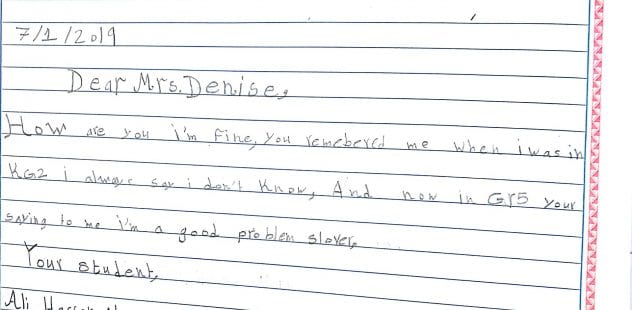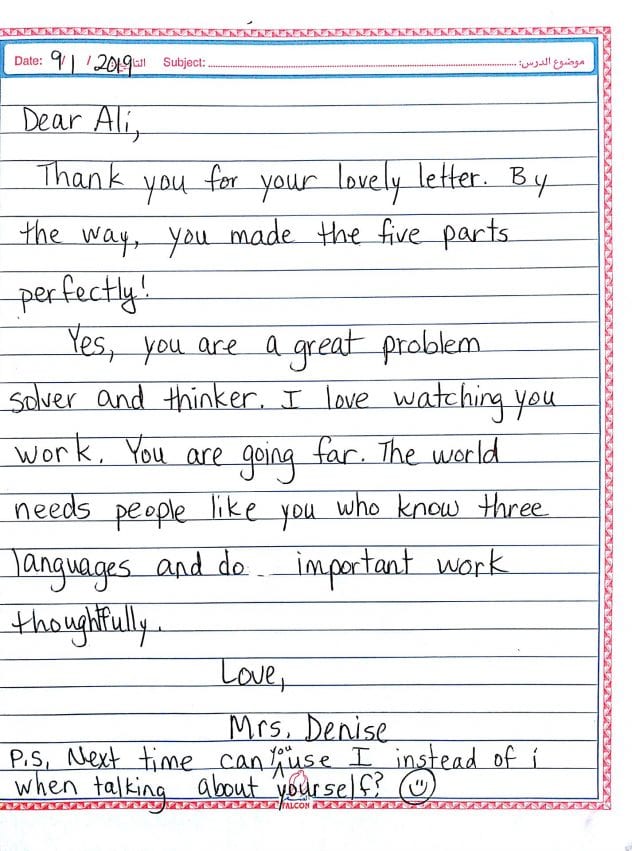I have rarely regretted going into education; it is the hardest and best profession there is. It is a job full of creative opportunities, rich relationships and camaraderie, and surprises.
Today I was reading student dialogue journals.* This gem came along:
Dear Mrs. Denise,
How are you? I’m fine. You remembered me when I was in KG2. I always say “I don’t know.” And now in Grade 5, you’re saying to me I’m a good problem solver.
Your student,
Ali

Of course, how could I forget Ali? When I met him, it really did seem the only thing he could say in English was, “I don’t know.”
It was five years ago, and I was new to Bahrain, new to ELL students, and new to kindergartners. I learned a lot that year. So did Ali.
Fast forward five years, and I have the pleasure and privilege of teaching Ali’s class again. Now, he doesn’t say ‘I don’t know.’ He has learned to figure out what he doesn’t know through observation, good questions, and a desire to learn. I am so proud of him.

My response to Ali’s letter was easy to write. His letter was a delightful reminder and a sweet teacher reward for today.
What teacher reward did you receive today? Did you notice?
*Dialogue journals are a great activity in the English language learner classroom. I learned about the process through a TESOL book called Dialogue Journal Writing for Non-Native English Speakers: A Teacher’s Handbook. Teachers and students share dialogues in a notebook. The student writes about anything, asking questions about academics or life. The teacher writes back, modeling good writing and answering questions students have posed. The teacher writes a reply of comparable length to what the student wrote. This is a time for authentic conversation, not convention corrections, though you did notice I asked Ali to use I, instead of i for the personal pronoun. Occasionally I will give them one thing to work on, especially something like “I” that we’ve worked on and I expect mastery.
More resources about Dialogue Journals
- Jennifer Gonzalez Cult of Pedagogy – “How Dialogue Journals Build Teacher-Student Relationships” with Liz Galarza.
- Dialogue Journals. ERIC Digest